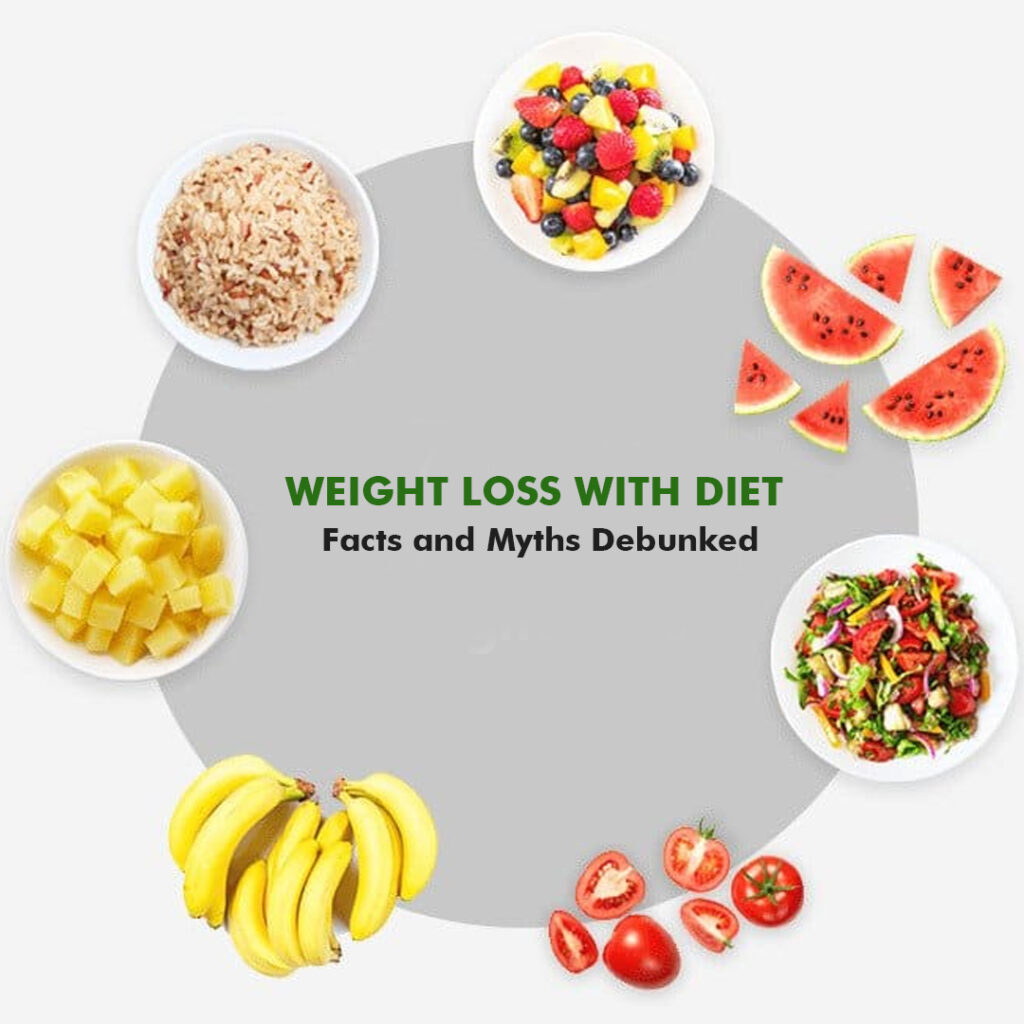Weight Loss with Diet - Facts and Myths Debunked

A growing concern in India is the escalating prevalence of overweight and obesity, reaching unprecedented levels. The statistics reveal a substantial rise, with approximately 75% of men and 60% of women grappling with excess body fat. Alarmingly, 25% of children are now classified as overweight or obese, indicating a concerning trend in the younger population.
Consequently, the surge in obesity rates is closely tied to an uptick in obesity-related health issues, including conditions such as coronary heart disease and diabetes. The urgent need for awareness to address this health crisis is evident as the numbers continue to climb.
When trying to lose weight you will be receiving all kinds of tips and suggestions from people around, some of which are reliable and evidence-based, while others are mere myths circulating in popular culture. Keep reading to unravel the truths and debunk the myths surrounding weight loss through diet, providing a solid foundation for achieving sustainable and healthy weight loss.
Fact #1- Caloric Balance is Key
One of the fundamental principles of weight loss is maintaining a caloric deficit. To put it in simple words, you need to burn more calories than you eat. This principle is supported by scientific evidence and forms the backbone of successful weight loss. Fad diets that promise rapid results often fail to address the importance of creating a sustainable caloric deficit.
Myth #1- Crash Diets Guarantee Lasting Results
While crash diets may lead to quick weight loss initially, they are not sustainable in the long run. Many people on crash diets often experience a rebound effect, gaining back the lost weight once normal eating resumes. Additionally, crash diets can be detrimental to your overall health by depriving your body of essential nutrients.
Fact #2- Quality Matters as Much as Quantity
It’s not just about counting calories; the quality of your calories is equally important. Go for nutrient-dense foods that provide you with essential minerals, vitamins, and other beneficial compounds. A balanced diet consisting of whole grains, lean proteins, fruits, vegetables, and healthy fats can promote overall health while supporting weight loss.
Myth #2- Eliminating Entire Food Groups is Necessary
Some diets advocate for the complete elimination of certain food groups, such as carbohydrates or fats. However, each macronutrient plays a crucial role in your body, and a well-balanced diet should include a variety of foods. Instead of cutting out entire food groups, focus on moderation and choosing healthier options within each category.
Fact #3- Regular Physical Activity Enhances Weight Loss
While diet plays a significant role in weight loss, incorporating regular physical activity is essential for optimal results. Exercise not only burns calories but also improves metabolism, muscle tone, and overall well-being. Combining a healthy diet with regular exercise creates a powerful synergy for achieving and maintaining a healthy weight.
Myth #3- Supplements are a Shortcut to Weight Loss
The market is flooded with supplements claiming to accelerate weight loss with minimal effort. However, there is no magic pill for sustainable weight loss. While some supplements may aid in specific aspects of weight management, they are not a substitute for a balanced diet and regular exercise. Make sure to consult with a healthcare professional before you add any supplements into your routine.
The interplay between food, the human body, and weight management is intricate and multifaceted. Rather than succumbing to prevalent myths, it is, thus, essential to acknowledge the complexity of this relationship.
For those keen on achieving weight loss, a more informed approach involves delving into evidence-based modifications that can be implemented in both diet and lifestyle. By dispelling misconceptions and focusing on scientifically supported practices, individuals can make meaningful strides toward their weight loss goals.
